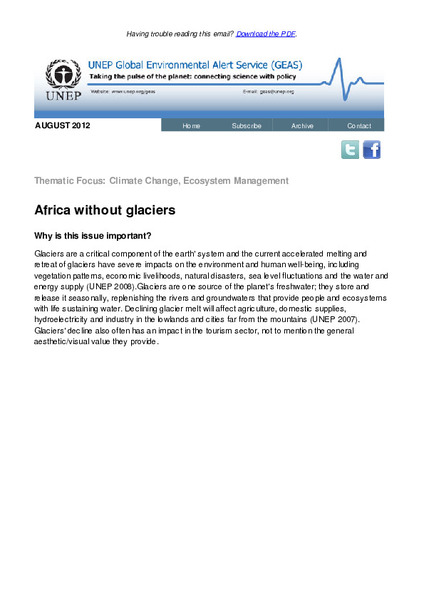| dc.description | Glaciers are a critical component of the earth' system and the current accelerated melting and retreat of glaciers have severe impacts on the environment and human well-being, including vegetation patterns, economic livelihoods, natural disasters, sea level fluctuations and the water and energy supply (UNEP 2008).Glaciers are one source of the planet's freshwater; they store and release it seasonally, replenishing the rivers and groundwaters that provide people and ecosystems with life sustaining water. Declining glacier melt will affect agriculture, domestic supplies, hydroelectricity and industry in the lowlands and cities far from the mountains (UNEP 2007). Glaciers' decline also often has an impact in the tourism sector, not to mention the general aesthetic/visual value they provide. | en_US |


